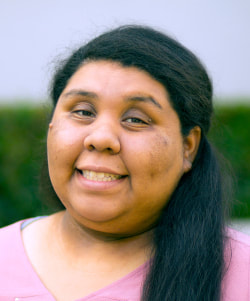Soto-Lara is specializing in Human Development in Context for her doctoral work. Her research foci include educational trajectories of underrepresented youth, adolescent development, parental engagement, and after-school activities. She is currently working on the Family Support of Math and Science Motivation project with Simpkins and a project funded by Mott Foundation to examine ethnic/minority youth participation in after-school programs with Simpkins and Chancellor's Professor Emerita Deborah Vandell. She is advised by both Simpkins and Vandell.
Simpkins is a developmental psychologist, studying child and adolescent development. She researches how families, friendships, and social position factors (such as ethnicity and culture) shape adolescents’ organized after-school activities and motivation. She is currently working on research focused on the positive outcomes of youth’s participation in activities as well as the predictors and correlates of high school students’ STEM motivational beliefs. Abstract The aim of this study was to use sociocultural perspectives to elaborate on Eccles’ parent socialization model and create a culturally grounded, multidimensional model of parent support among Mexican-descent families. Given Latinx underrepresentation in science, technology, engineering, and mathematics careers, we focus on science as an important domain in which to study parent support. Using a qualitative approach, this study examines (a) what forms of parent science support do Mexican-descent parents and adolescents perceive as best practices and (b) what are the social, cultural, and contextual barriers parents face and in what ways do parents continue to support their adolescents in science in spite of those barriers? Seventy-four parent (mean age: 40 years; 23% U.S.-born and 77% Mexico-born) and 73 adolescents (mean age: 15 years; 41% female) were interviewed. Interviews were analyzed using inductive and deductive approaches. Findings suggest that parents use traditional and nontraditional culturally grounded forms of support: involvement at home, providing words of encouragement (e.g., échale ganas), and leveraging resources (e.g., kin support). Participants felt work-related barriers, linguistic barriers, and limited science knowledge shaped parents’ support. Results highlight the unique ways parents support their adolescents’ science education as well as the need for educators to consider how parents’ sociocultural experiences shape their support. Comments are closed.
|
Resources for:
|
|



